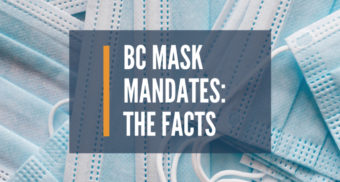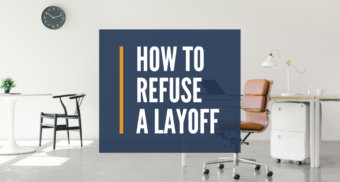B.C. Lawyer on Filing Wrongful Dismissal Over Vaccine Policies: 980 CKNW

Interview Summary
As another wave of the pandemic continues to disrupt businesses and employers and employees are forced to adapt, more employers have decided to impose vaccine mandates. Are these mandates legal? What are unvaccinated employee rights upon termination?
A Vancouver employment lawyer at Samfiru Tumarkin LLP joined Mike Smyth on Global News Radio 980 CKNW to answer these questions and more.
Interview Notes
What is the most common concern unvaccinated employees are facing?
Many employees who are unvaccinated have been put on unpaid leaves as a result of their vaccination status and eventually could face termination if they choose to remain unvaccinated.
What options do unvaccinated employees who have been fired have?
It is important to remember that employers can terminate employees for any reason as long as it is not discriminatory and adequate severance is offered upon termination. Employees who have been terminated and not offered severance pay should determine what they are owed. Employees who have valid exemptions from vaccination cannot be penalized for refusing to be vaccinated and could have a human rights complaint.
Do employees who work from home have to abide by a vaccine mandate?
Employees who work remotely and are never physically in the workplace can still be terminated however must be given severance pay. Employers are not able to terminate employees for cause, particularly if an employee is working remotely.
Are unionized employees subject to different regulations regarding vaccination?
Some collective bargaining agreements could refer to vaccination policies however it is very uncommon and COVID-19 has brought forth many unexpected and novel circumstances.
Will medical exemptions for employees stand up in court in wrongful dismissal suits?
As of yet, there have not been any cases that have led to a court regarding this particular issue. Employees who have documented medical conditions and have a detailed medical exemption, as well as possible accommodations for the workplace, could have a wrongful dismissal case. Religious exemptions are proving more difficult to prove as valid as they rely fundamentally on a belief system however could be successful.
Are employees able to argue a personal liberty argument against vaccination?
Personal liberty arguments are unlikely to stand up in court in wrongful dismissal suits or offered protection by employment laws.
As an employer am I able to pursue a loss of income case against an employee who quit due to fear of contracting COVID-19?
Employers should look closely at their employment contracts in order to establish whether or not they could argue a loss of income. Employers should also ensure they are following all public health guidelines as an inability to do so can lead to a valid work refusal.
Are employers ultimately liable if an employee has an adverse reaction to a vaccine?
Employees are ultimately offered a choice of whether or not they wish to be vaccinated or lose employment and so, employers cannot be considered liable. There is no basic legal right or entitlement to employment.
What is the difference between drug and alcohol testing and COVID-19 testing in the workplace?
Many employers and professionals have looked to the laws and regulations surrounding drug and alcohol use and its connection to the workplace to implement COVID-19 safety protocols. Testing for drug and alcohol use is widespread in many industries and is used in order to promote a healthy and safe work environment, similar to COVID-19 testing.




